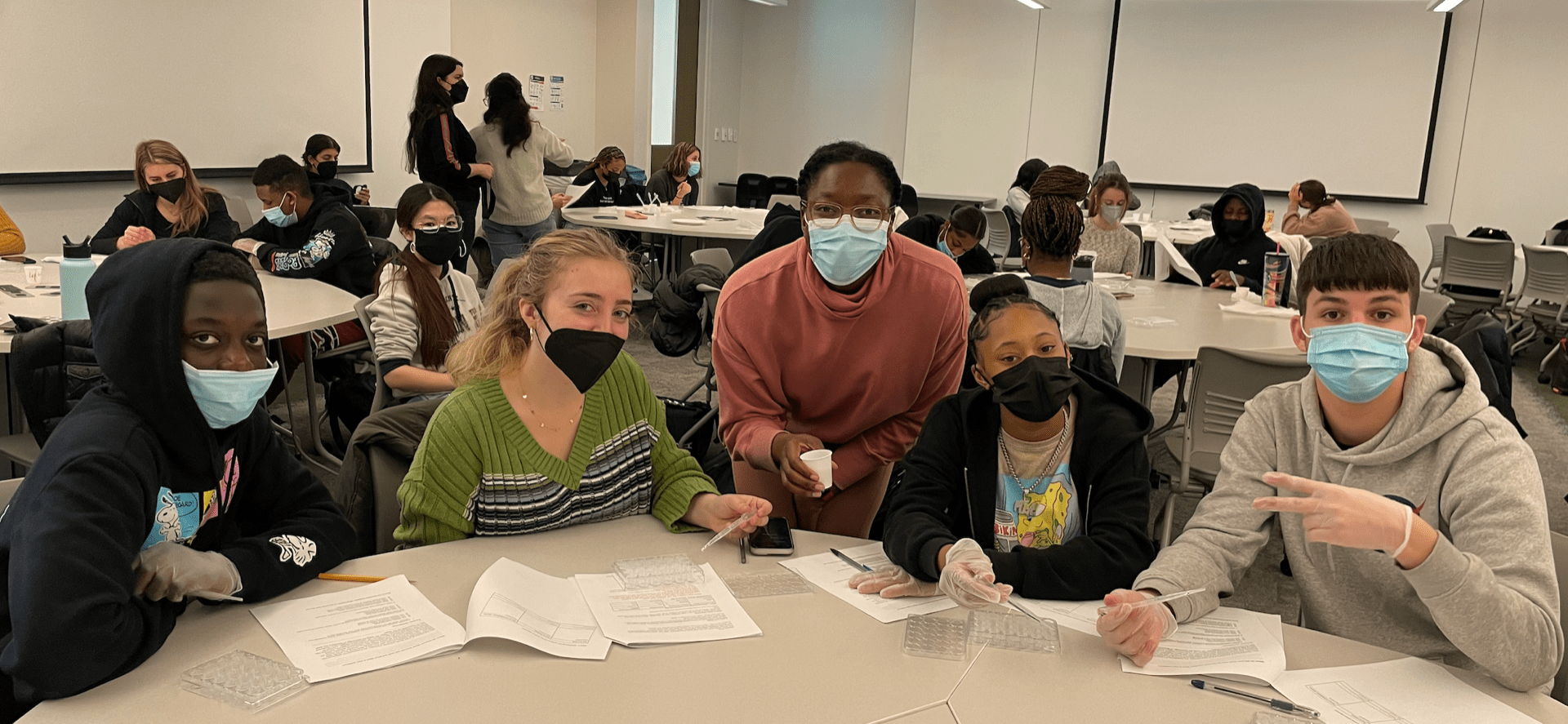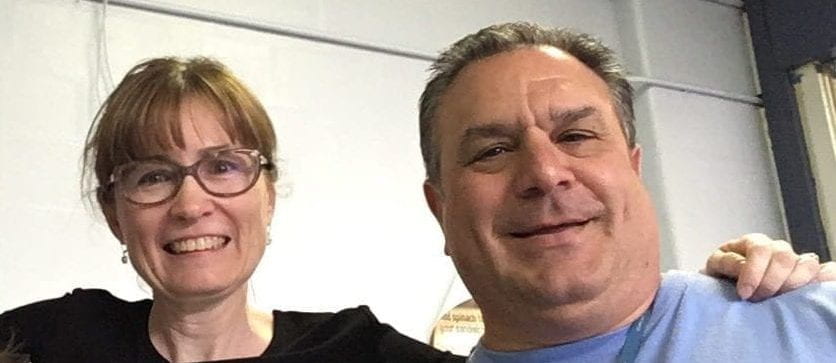Principal Investigator

Lori Flanagan-Cato is an Associate Professor in Psychology, co-Director of the Undergraduate Neuroscience Program, and Director of the graduation certificate in Community-Engaged STEM at Penn. She received her B.A. (Psychology) from Rutgers College, her Ph.D. (Neuroscience) from the University of Pittsburgh, and her M.Ed. (Education Policy) from the University of Pennsylvania. Dr. Flanagan-Cato created the academically based community service course (ABCS) Everyday Neuroscience in 2016, and it has been offered every year since. She works closely with teachers at the partner high school to ensure that Everyday Neuroscience provides a meaningful enrichment to their science curriculum.
In 2023, she began a new graduate ABCS course called Biomedical Research in the Urban Curriculum, which provides STEM-focused community engagement experiences for graduate students in basic science and biomedical research. This course supports Penn’s graduate certificate in Community-Engaged STEM. In Fall 2024 she launched an additional ABCS course called Everyday Psychology, which partners with West Philadelphia High School, to share relevant and accessible knowledge with local high schoolers, while giving Penn students real-world research experience.
Current Team
 Eva Minahan, MA (she/her) is a Clinical Psychology doctoral student within Penn’s Clinical Training Program. She earned her BS in Psychology with a minor in Neuroscience from the University of Maryland, College Park. She then worked at the Johns Hopkins University ALACRITY Center, collaborating with faculty on studies aimed to 1) improve the physical health of persons with serious mental illness and 2) implement evidence-based interventions into community mental health programs. Eva completed her MA in Clinical Psychology at the Northwestern University Feinberg School of Medicine. Under the mentorship of Kathryn Macapagal, PhD within the Teen Health Lab, she executed a thesis on the online relationships of feminine LGBTQ+ adolescents and their psychosocial wellbeing. She continued her work in the Teen Health Lab as a Senior Research Study Coordinator, leading a Youth Advisory Council to inform studies addressing sexual health disparities of LGBTQ+ adolescents. Eva’s research interests surround the mental health of minoritized adolescents and using community-engaged methods to develop and implement effective, tailored interventions.
Eva Minahan, MA (she/her) is a Clinical Psychology doctoral student within Penn’s Clinical Training Program. She earned her BS in Psychology with a minor in Neuroscience from the University of Maryland, College Park. She then worked at the Johns Hopkins University ALACRITY Center, collaborating with faculty on studies aimed to 1) improve the physical health of persons with serious mental illness and 2) implement evidence-based interventions into community mental health programs. Eva completed her MA in Clinical Psychology at the Northwestern University Feinberg School of Medicine. Under the mentorship of Kathryn Macapagal, PhD within the Teen Health Lab, she executed a thesis on the online relationships of feminine LGBTQ+ adolescents and their psychosocial wellbeing. She continued her work in the Teen Health Lab as a Senior Research Study Coordinator, leading a Youth Advisory Council to inform studies addressing sexual health disparities of LGBTQ+ adolescents. Eva’s research interests surround the mental health of minoritized adolescents and using community-engaged methods to develop and implement effective, tailored interventions.
 Linna Zhu (Penn ’26) is an undergraduate from Baltimore, MD, majoring in Neuroscience. Her current research explores how out-group exposure shapes social perceptions, such as warmth and competence, through Penn’s ABCS courses Everyday Neuroscience and Everyday Psychology. Outside the lab, Linna enjoys making art, watching the latest movies and anime, swimming, and exploring the city.
Linna Zhu (Penn ’26) is an undergraduate from Baltimore, MD, majoring in Neuroscience. Her current research explores how out-group exposure shapes social perceptions, such as warmth and competence, through Penn’s ABCS courses Everyday Neuroscience and Everyday Psychology. Outside the lab, Linna enjoys making art, watching the latest movies and anime, swimming, and exploring the city.
Previous Penn students
Erin Purvis (Penn PhD ’24) earned her PhD in the Neuroscience Graduate Group (NGG at Penn’s Perelman School of Medicine). She was been a member of the Everyday Neuroscience team since Fall 2021. Erin was awarded a 2022-2024 Provost’s Graduate Academic Engagement Fellowship. She is currently a Civics Engagement Fellow at UC Irvine.
https://dana.org/article/formalizing-community-engagement-training/
Makayla Clark (Penn ’25) majors in Neuroscience with a minor in Chemistry. She completed an honors thesis on mechanisms that drive reductions in intergroup bias through Penn ABCS courses.
Kayleigh Mooney (Penn ’25) was a psychology major and a sociology minor She contributed to our work through the Penn Undergraduate Research Mentorship program and an independent research project.
Sarah Hatch (Penn GSE ’23) participated in the Provost’s Graduate Community-Engaged Research Mentorship program. She collaborated with Dr. Flanagan-Cato to create a theory of change and logic model for the course. She is now a PhD student at Harvard.
Ryan Afreen (Penn ’23) conducted a Neuroscience honors thesis to examine the possible changes in language use as Penn students and Robeson students became acquainted. She now attends Mount Sinai Medical School.
Yunshi Luo (Penn GSE ’23) supported our work with various data analysis projects. She is now a special education instructor in California.
Harrison Fellheimer (Penn ’22) conducted a Neuroscience honors thesis to study the possible effects of spatial reasoning games on cognitive function. He now attends Thomas Jefferson Medical School.
Theodor Lenz (Penn ’22) conducted a Neuroscience honors thesis to study the possible connection between neuroendocrine changes and social perception. He now attends Penn’s Perelman School of Medicine.
Sneha Sharma (Penn ’22) conducted an honors thesis in Philosophy, Politics and Economics, studying the role of academic motivation in educational acceleration.
Raul Vila (Penn ’22) conducted an independent study in Neuroscience, studying the role of emotional well-being in educational acceleration. He now works for a healthcare consulting group.
Violet Tu (Penn ’21), a biophysics and neuroscience double major, analyzed possible effects of our Robeson partnership on social perceptions. She is now an MD/PhD student at Duke.
Christina Steele (Penn ’20) completed an award-winning Psychology Honors Thesis in the laboratory of Dr. Adrianna Jenkins entitled “A Real-World Study of the Contact Hypothesis: Intergroup Contact in Academic-Based Service Learning.” Christina is now a PhD student at Harvard.
Peter Nwaoba (Penn ’19) completed an independent study project entitled “Does an ABCS neuroscience outreach program improve high school achievement?” Peter completed his MBA at the University of Virginia, and now works in the healthcare technology sector .

